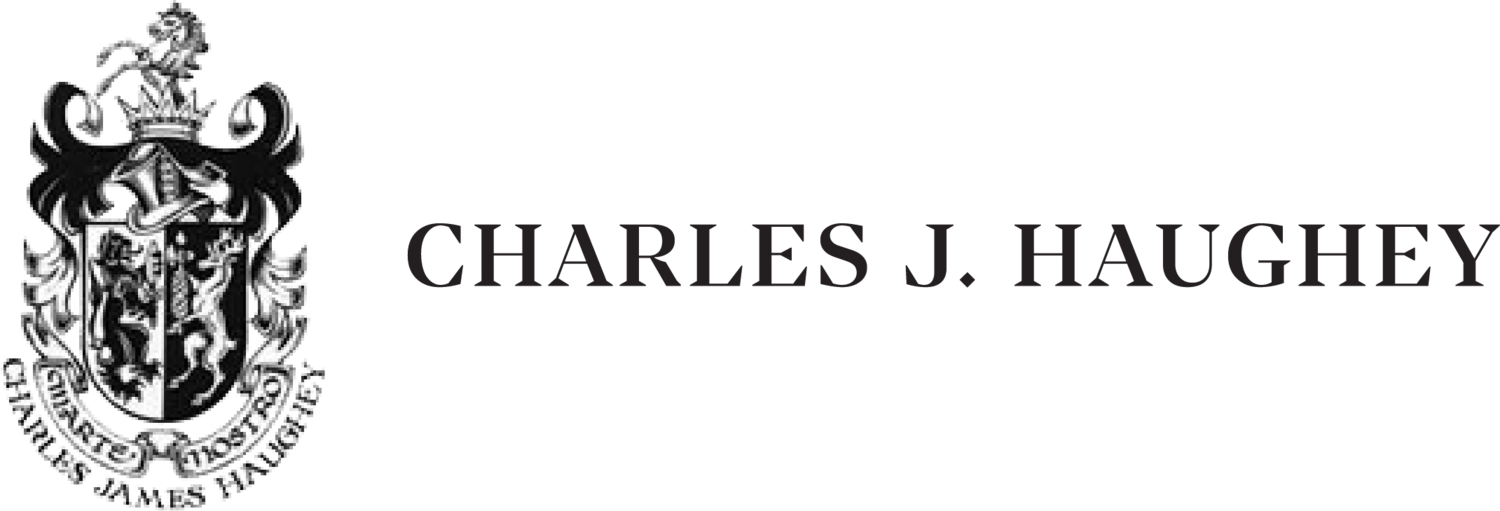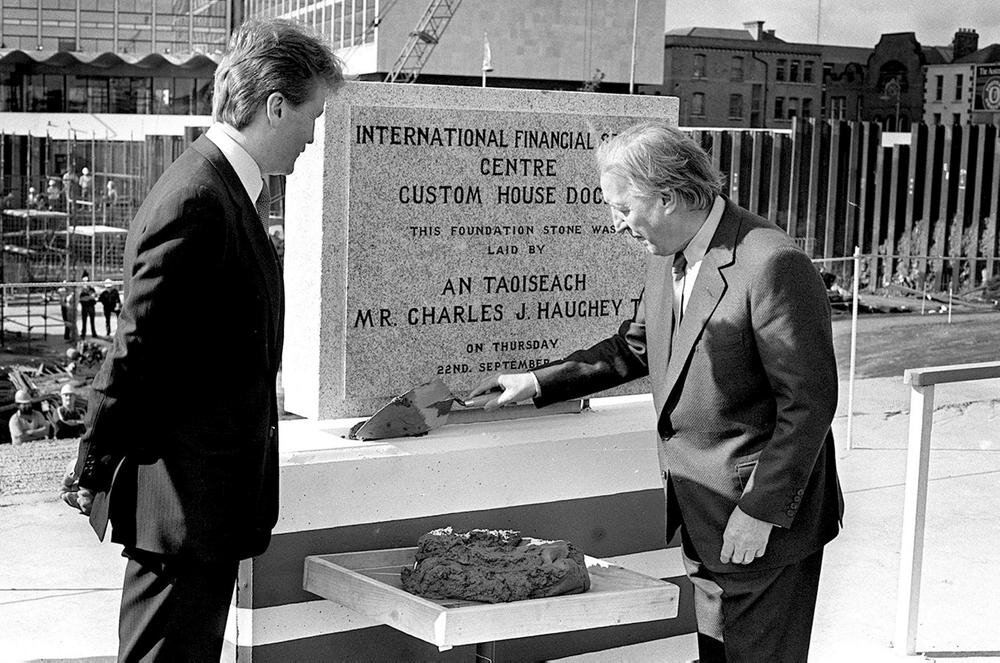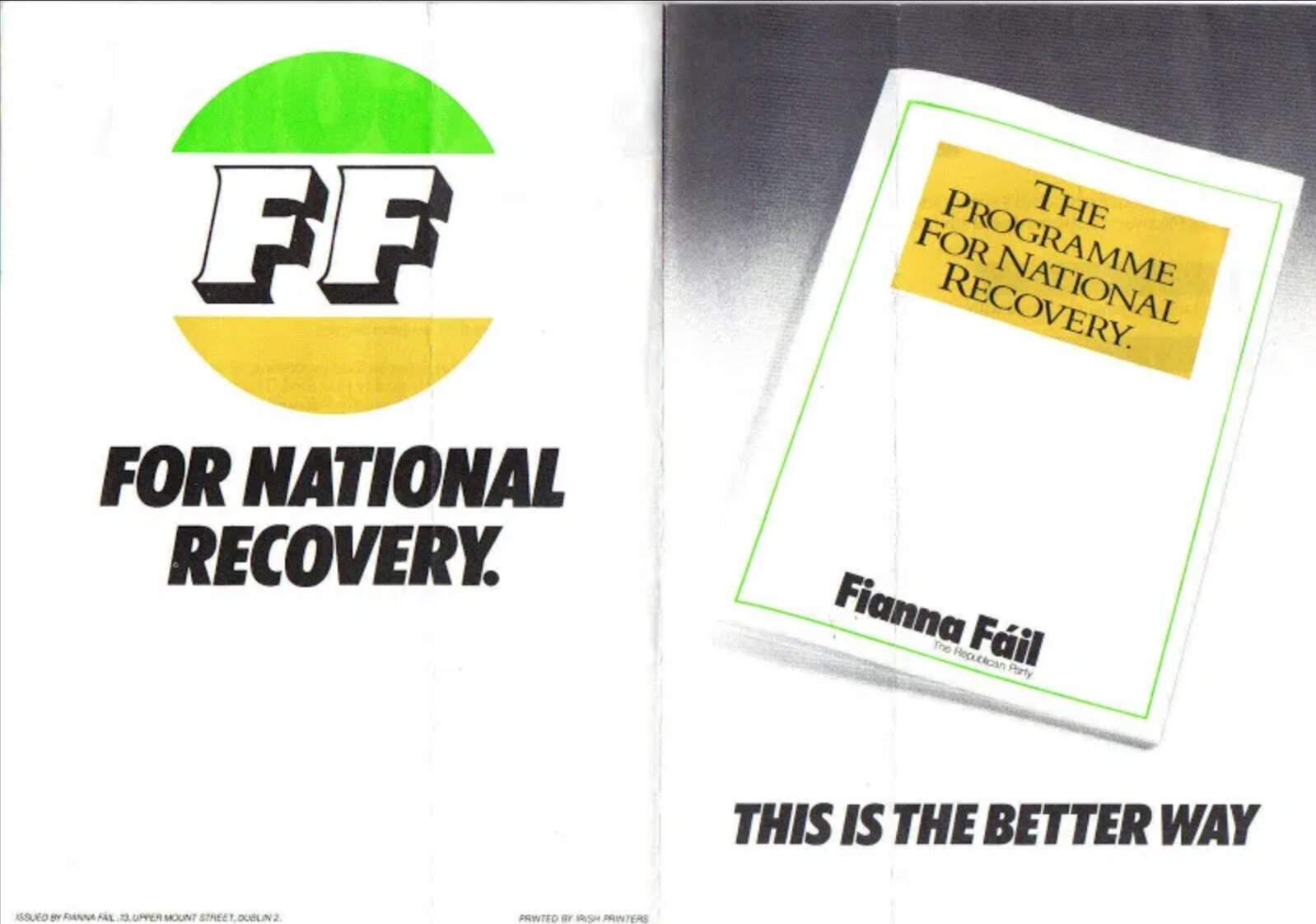Is it time to acknowledge the legislative achievements of Charles Haughey?
Approaching the centenary of his birth in September, and 60 years after the passing of the Succession Act in 1965, is it time to give greater credit to the legislative record of Charles Haughey?
As minister for justice from 1961-1964, Haughey, still in his 30s, introduced ground-breaking legislation that would change lives.
It included the Criminal Justice Act, 1964, which abolished the death penalty with exceptions retained for killing gardaí, prison officers and diplomats. These exceptions were removed in 1990 when Haughey was taoiseach. He also introduced the Adoption Act, 1964, which built on the 1952 Adoption Act and emphasised the rights of the child and the birth mother.
And it was Haughey who introduced the Succession Bill in 1964 before becoming minister for agriculture later that year. His successor as minister for justice, Brian Lenihan snr, saw the Bill through the Oireachtas in 1965.
The resulting Succession Act entitles a surviving spouse to a portion of the estate of the deceased spouse, whether or not a will exists.
If there is no will, the surviving spouse is entitled to the whole estate if there are no children or two-thirds of the estate if there are children while the children receive one-third. Even if there is a will, the surviving spouse is entitled to half the estate if there are no children and one-third if there are children. The Act marked a giant leap forward in family life and law.
Before the Succession Act, it was possible for one spouse to exclude the other from benefiting from his estate. For example, a man could leave his farm to a male relative without making any provision for his widow.
In seeking a solution to this problem, Haughey was assisted by outstanding civil servants including Roger Hayes and Paddy Terry. They provided invaluable help, which he acknowledged.
Another factor that prompted Haughey to introduce the Succession Bill was the large amount of money, sometimes even a farm, being left to the church while widows were neglected. Patrick Hillery, later president of Ireland, had encountered this phenomenon in the course of his medical practice in Co Clare.
Pat Lindsay, a lawyer and a Fine Gael Dáil deputy at the time the Act was passed, observed in his book Memories how since the passing of the Act “the old days of cutting the wife off without a shilling or threatening that if she remarried she would have to give up her life tenancy ... that kind of thing is all gone”.
But opposition came from Fine Gael in the Dáil and the Seanad and in its document The Just Society, published in the same year as the Succession Act was passed. In that document, a section dealing with a proposed law reform programme stated that “such follies as Fianna Fáil’s Succession Bill will find no place in such a programme”, although it did say that the rights of widows and dependent children would be protected.
In Dáil debates, former taoiseach John A Costello, father of Declan Costello, originator of The Just Society document, praised many aspects of the Bill. He pointed to situations where, under prevailing conditions, wives were “badly treated”. However, future taoiseach Garret FitzGerald opposed the Bill in the Seanad.
Haughey had personal insight into the possible plight of widows. He was 22 in 1947 when his father died, aged 49, leaving a widow and seven children. Haughey’s sister, Ethna, recalled how Cathal, as he was known in the family, phoned their mother regularly when she returned from early-morning Mass.
The Succession Act came late for many, not only widows. In 1936, Osmond Esmonde contested his father’s will in which his father, Thomas, had left his entire estate to his second wife. Following a lengthy court hearing, the court opted in favour of Osmond’s stepmother. Not a shilling for the only surviving son.
In 2023, the Law Reform Commission published a review of the Succession Act. A number of changes had taken place since 1965, including the Status of Children Act, 1987, which abolished the concept of illegitimacy. This was of major importance.
But the Succession Act, 1965, remains Haughey’s legislative innovation.
Dr Finola Kennedy was lecturer in economics at UCD when appointed to the Second Commission on the Status of Women set up by Charles Haughey
This article was published by the Irish Times on July 6th 2025
The Arms Crisis of 1970
The arms crisis of 1970 came about when two Irish cabinet ministers, Charles Haughey and Neil Blaney, alongside an army officer and other figures, were accused by Taoiseach Jack Lynch of smuggling arms to the IRA in Northern Ireland.
The Free Travel Pass: One of Haughey’s greatest legacies
The introduction of The Free Travel Pass for the Elderly is one of Haughey’s greatest legacies. Described as “the greatest thing since fried bread or the sliced pan”, it enables the elderly or those over 66 years to escape from being perpetual prisoners in their own home and be able to freely travel daily, locally or throughout the length and breath of the country” by Micheál Ó Nualláin.
Fr Alec Reid letter to Haughey gave terms for IRA ceasefire 7 years in advance
Ed Moloney, former Northern Editor of The Irish Times and The Sunday Tribune, wrote this article in the Irish Times on July 5th 2007. Moloney argued at the time that the death of Charles Haughey the previous year made it possible to place on public record the extraordinary letter that launched the Northern peace process.
Haughey risked his career in daring search for peace
Ed Moloney is author of ‘A Secret History of the IRA’. He wrote this article in the Irish Times on June 19th 2006, a week after Haughey had passed away.
Helmut Kohl was forever grateful for Irish support during EU presidency
Stephen Collins wrote this article in the Irish Times on the 17th June 2017, following the death of former German Chancellor Helmut Kohl. Collins noted that in 1996, Kohl paid tribute to Haughey’s role in German unity process
The 1990 State Papers
David McCullagh and David Byrne write about the 1990 State Papers and how the Irish Presidency of the European Committee dealt with the reunification of Germany, the release of Nelson Mandela and other events. This appeared on RTE.ie on 27th December 2020
IFSC not possible without Charlie Haughey
Dermot Desmond will not brook revisionism in the writing, or re-writing, of the history of the International Financial Services Centre. "Let's be clear", he said, "Charlie Haughey set up the IFSC, encouraged by myself and others. Without Haughey's drive and leadership there would be no IFSC." Dermot Desmond shared his reminiscences on the foundations of the IFSC with Ken O'Brien, editor of Finance Dublin.
Social Partnership: Its origins and achievements
Shortly before he died, Charlie Haughey wrote about the origins and success of Social Partnership.
Charles Haughey’s secret therapy: Ex-Taoiseach’s former landscaper on CJ’s love of plants
This is an excerpt of an article that appeared in the online version of Irish Independent on March 26th, 2021. Alison Gill speaks to Haughey’s former landscaper on his love of trees and plants.
Beaumont Hospital: A priority for Haughey when he became Minister for Health in 1977
Haughey became Minister for Health in 1977 and a few short years later in 1983 Beaumont Hospital was built. The Hospital did not open due to a dispute with Health Minister Barry Desmond, finally opening in 1987 when Haughey was returned as Taoiseach.
Whale and Dolphin Sanctuary
Dr. Simon Berrow, Chief Executive Officer of the Irish Whale and Dolphin Group, writes about the significance of Charlie Haughey declaring Ireland a whale and dolphin sanctuary.
Charlie Haughey and Marine Policy
From the time he became Taoiseach in 1979, Haughey had a strong sense of the need for Ireland to reverse its abandonment of the marine sphere, writes Lorcán O'Cinnéide and Eoin Sweeney.
Charlie Haughey and the Arts
Poet Anthony Cronin discusses Haughey’s interest in the Arts and his achievements in the field including among others, the tax emption for artists, the establishment of the Aosdána and the foundation of the Irish Museum of Modern Art.
Northern Irish Peace Process
Martin Mansergh, former TD and special advisor to Fianna Fáil on Northern Ireland gives an account of Haughey’s relationship with the North and his secret communication with Fr Alec Reid which paved the way for the Peace Process.
Haughey pushed prescient vision of ‘citizens’ Europe
Harry McGee writes in the Irish Times about how the 1990 State Papers showed Haughey pushed the idea of a ‘Citizens’ Europe during Ireland’s Presidency of the European Community. This article appeared on IrishTimes.com on the 28th December 2020
Charlie Haughey and Equestrian
Leo Powell, editor of the Irish Field writes about Charlie Haughey’s interest and achievements in equestrian. He notes Haughey’s decision to introduce a tax exemption for stallion fees had a hugely positive impact on the sector.
Charles Haughey – Taoiseach
Photographer Bobbie Hanvey speaks about meeting and photographing Charlie Haughey less than a year before he died.
Memories of a Much-Admired Friend
Austin Dunphy, former architect in the Office of Public Works, writes about Haughey’s contribution to historic architecture and other fields.
Achievements in the field of Environment
Dr. David Cabot, Former Special Advisor on Environmental Affairs to Haughey, outlines some of his environmental achievements.




















